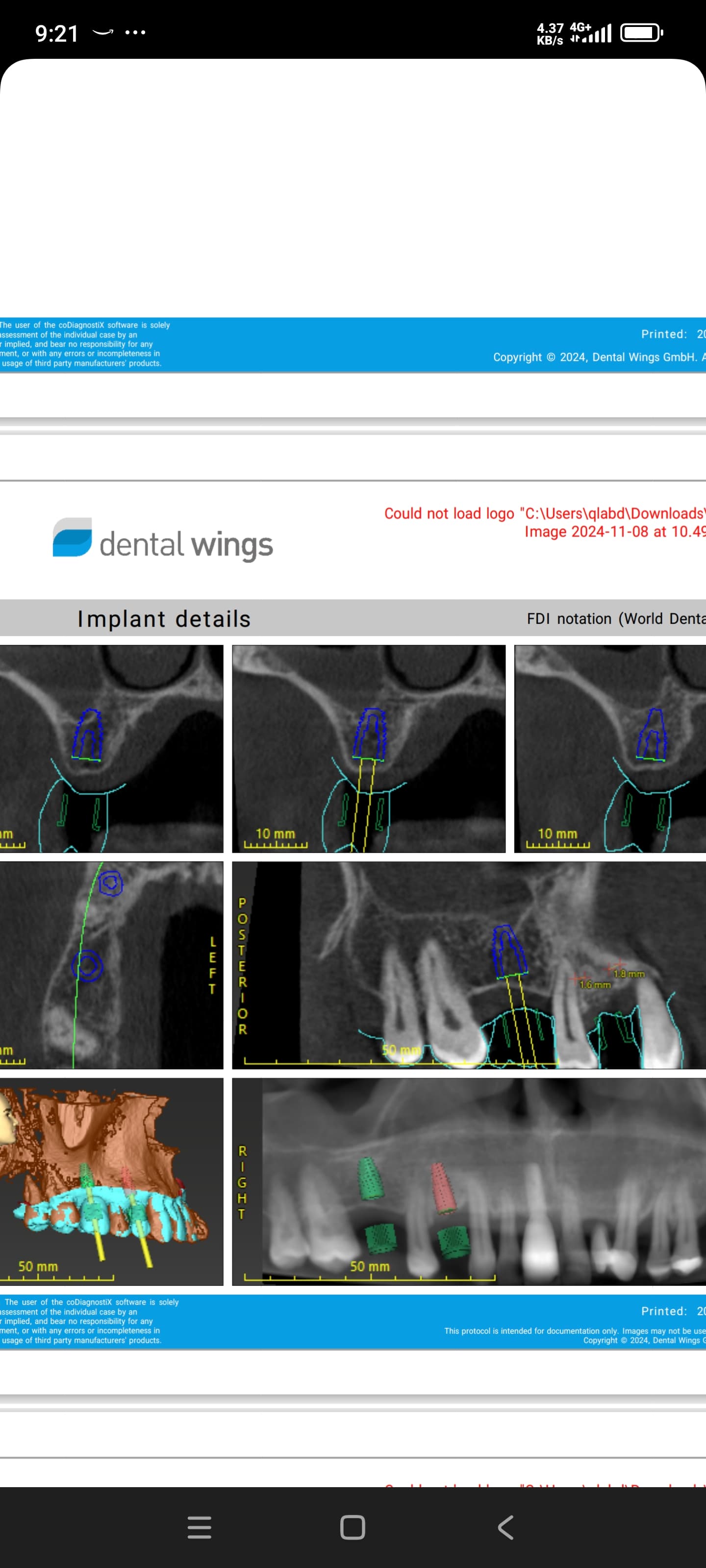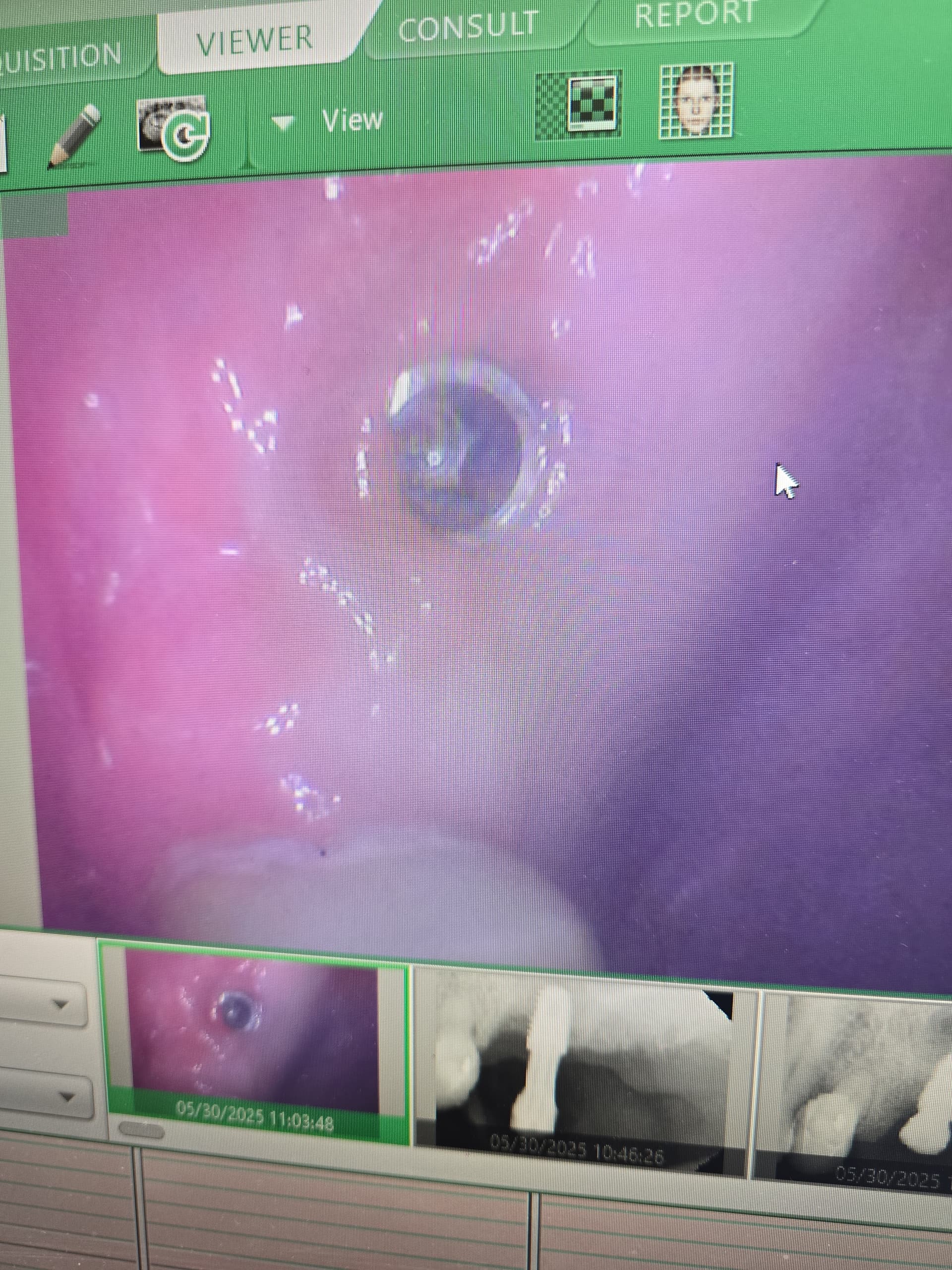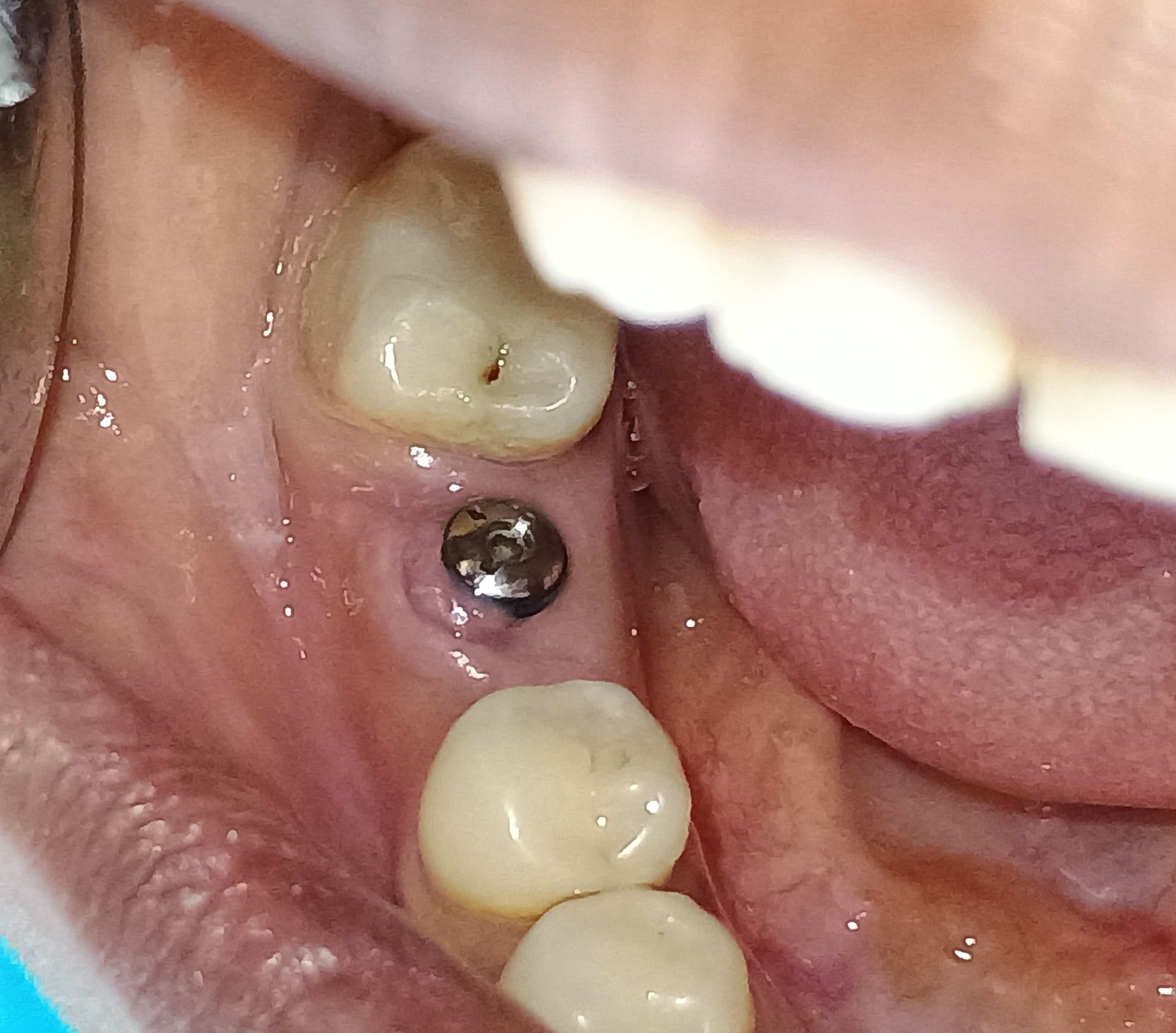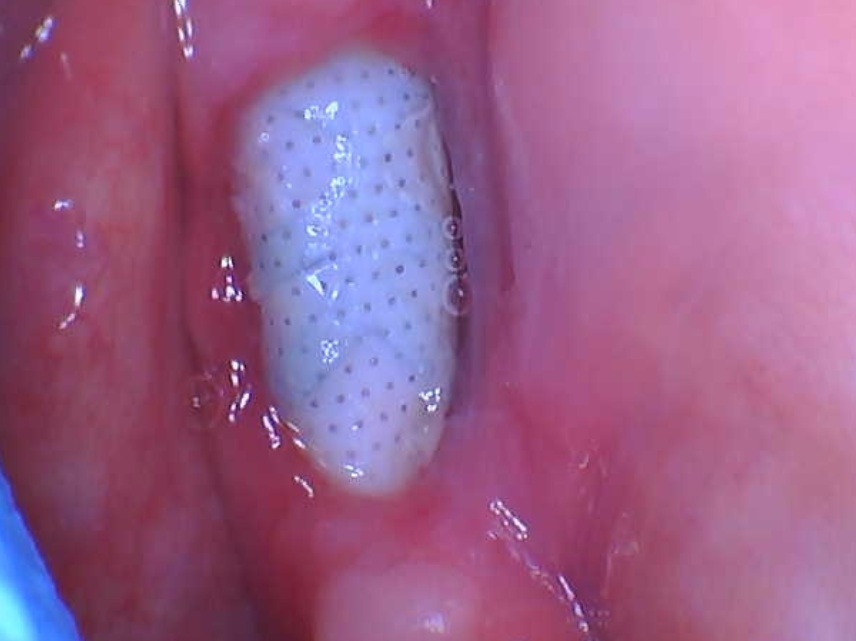Prophylactic Antibiotic Coverage when Placing Implants: What’s the Consenus?
Dr. DN asks:
The surgical placement of dental implants potentially has the risk of introducing a pathogenic inoculum deep into the jawbones. Quite a bit of controversy still exists about the routine use of prophylactic antibiotic coverage when placing dental implants. Is there a consensus developing about the proper protocol(s) for dental implant placement surgeries as regards antibiotic coverage? Is the mainstream thinking to prescribe prophylactic antibiotics or to administer antibiotics post-operatively? Which antibiotics are used and what are the dosages and regimens?
25 Comments on Prophylactic Antibiotic Coverage when Placing Implants: What’s the Consenus?
New comments are currently closed for this post.
Anon
4/8/2008
Only true evidenced based data is a perioperative dose of antibiotics,
Bruce G Knecht
4/8/2008
Dear DN,
This is a question that brings both sides out. Do we premedicate for an extractio? Sometimes yes and sometimes no. I premedicate due to the tramatic invassion of the tissue through reflection and osteotomy. This invasion allows air and bacteria from the oral cavity to enter into the site. The ability to fight off the invassion depends on the host response. In otherwords, the health of the patient and the site. I like to have the antibiotics on board to hedge my bet for success. On the other hand we may increase the chance of resistance. If you do not premedicate, I would only do it on a young man or woman that has no medical issues. This is my opinion and as Carl Misch would say, " I will not argue on another man's religon, but only on facts." If you read the studies they will go back and forth on this issue. This is an experience issue as I see it.
Alejandro Berg
4/8/2008
For the last 15 years we have been using premedication with antibiotics and after 4500 implants we have never had an infection after surgery. A wide spectrum antibiotic + an anti inflamatory (non steroidal) satrting 2 days before, and for a total of 7 days. Since arround 10 years now , we have added a dexamethasone to help patients with the post op.
cheers
LC
4/8/2008
Anon: What is the standard perioperative antibiotics for implant? The period could be long.
Dr. Berg: what is the clinical justification for dexamethasone? Clearly, it is not for microbial control.
In other words, what are the major post-op concerns?
LC
4/8/2008
BTW, Dr. Berg, is there any studies regarding the impact of specific antibiotics on wound healing and tissue regenerations?
The effect could be positive or negative.
Dobs
4/8/2008
Why do dentists need to re-invent the wheel every time that they take on an issue?
Doing surgery through the oral cavity is by definition 'clean contaminated' surgery. The general rate of surgery in this environment is 3.5% to 5%.
When implants are placed in the orthopaedic surgery, usually through a 'clean' environment, the rate of infection is 1% to 3%. All orthopaedic surgeons in my region use true prophylactic antibiotic coverage for at least one dose preop and up to 24 to 48 hours postop. This does not guarantee that no implanted device will not get infected as implant infections do occur even in a 'clean' environment.
I placed my first osseointegrated implant in the early 1980's and my regimen was to use true prophylactic coverage one hour preop and then oral coverage for 7 days postop. The rate of infection in a non grafted, non previously operated case has been less than 1/2%. The rules of the game change in situations that have had multiple previous surgeries eg. apicos, failed grafts, poor periodontal health etc. and the infection rates climb in spite of antibiotics.
I also think that it is critical to distinguish between infections and wound breakdown as although they may appear in concert each may appear independly. Wound breakdown is more frequent in individuals who have had previous surgery, immune compromise, diabetes and may not predispose the implant to failure.
Dobs
Pablo
4/8/2008
I think assessment of the patient is more important. A good history and the systematic collection of this information is more important than the choice of inclusion of other drugs.
Larry Duffy
4/9/2008
My oinion is that yes you should consider antibiotics for a minimum of 5 days....depending on the patient it may be longer...my concern is bacteria that gets under the periosteum of the flaps....this is not a usual area that is exposed to ther oral environment....I am sure that some bugs gwet into the osteotomy as well... five days of the appropriate antibiotic will not cause any delayed healing or bone bridgin in my opinion...it is difficult to handle a full blown infection after the fact and try to maintain the implant integrity as well
JW
4/9/2008
If you are worried about bugs under the gums when you flap, you should, by the same reasoning, place patients under AB coverage everytime you lay a flap...surgical extractions, periodontal surgery perhaps even routine ext's. What about flapless surgery? There are no great studies prospective double blind, randomized human studies that are conclusively for or against AB coverage. Plus, we must be prudent about dispensing antibiotics like candy, as resistance is an issue. With any antibiotic/antimicrobial, there is no "standard" protocol for all patients. You need to consider the patient and the clinical situation. For example, like Dobs said, for a healthy patient with no prior problems undergoing a single fixture placement with a minimal flap should not need antibiotics. If you are doing a sinus lift, large mobilized flap and osseous grafting, block graft or opening the lingual spaces, it's probably prudent. Prudent, maybe not indicated. BTW, the dex is used to reduce swelling.
Bonesurgeon
4/9/2008
Antibiotics should not be used as a 'get out of jail free' card for poor surgical technique. Simple implant placement does not require any antibiotic treatment whatsoever - anyone who is getting post-op infections after placing implants should look closely at their surgical technique and cross infection control.
Registered Nurse
4/9/2008
I totally agree with Bonesurgeon on sterile technique. I have recently been to two different dentists who never washed their hands and obviously think placing non-sterile gloves on with dirty hands is good enough even when dremoving teeth. As an R.N., I was appalled but I didn't want to offend the dentists. My dentist answered his cell phone while checking a post op tooth with an opening he was trying to remove some bone. Come on dentists-sterile technique is a MUST!
L. Scott Brooksby,DDS, DI
4/10/2008
There was a big controversy with one of my patients several years ago. Another dentist insisted that I was negligent in prescribing antibiotics 2 days before and 5 days after. We found the literature to be ambivolent. We tried about 6 months with no antibiotics on board except for specific indicated cases. Our failure rate went up. We went back to using antibiotics starting 2 hours before and 5 days after. The failure rate went way down. We are trying to be cognizant of the over use of antibiotics and the possibility of creating drug resistant strains of bacteria. I found out later that the dentist that made the comments had place two implants in his life.
ashdin
4/15/2008
antibiotics.yes preoperatively.....but dex? NSAID should suffice.
Alejandro Berg
4/15/2008
Dear DN:
a crticoid is used in conjunction with a nsaid to get a better inflamation control (better post op), less infamatory response, less pain, happier patient and yes it has no bearing in the infection control.
Most of the time in a single unit off course a said may suffice but in multi implant surgey patients are grateull for a better post op and a short week of dex will help in that with no side effects
Keith Webster
4/15/2008
The Journal of anedcote states that using x days of perioperative antibiotics I have never had an infection. The Journal of evidence based medicine suggests that clean contaminated surgery requires only perioperative antibiotics. God only knows how patients having extractions survived without antibiotics.
Gentlemen, move into the real world, implant patient is minor oral surgery and infection rates are low. Embrace evidence based medicine and dare not to prescribe!!
Yazad
4/15/2008
Whether preop or post op or whether at all or not depends on a no. of factors.
1.Is the oral hygiene compromised?
2.Are there any such factors local or systemic which would jeopardise the outcome due to infection?
3.Is the pt. motivated towards oral hygiene & what is his DMF index?
4.What is the scale of surgical intervention required?
If yes to 1 then preop & postop
If yes to 2 then again same as above
If yes to 3 then no need of preop but maybe post op if intervention is major
If scale of surgery is full flap or grafting then definitely yes to postop but would have to consider whether preop is req. or just an anti-infective oral rinse preop would be enough to reduce oral bacterial counts as documented in literature.
Also there is a huge lacuna amongst dentistry on the spectrum of antibiotics & the microbiology involved & many a times people end up writing what the company dictates as spectrum of the antibiotic but we should stick to our knowledge of microboilogy for that & not get misguided, this is a huge topic by itself & would require separate panel to discuss.
Thanks
charles Schlesinger, DDS
4/17/2008
The studies on antibiotic use with implant placement are all over the place.
1. Morris, et al JOI, Vol 30: No significant difference in survival with or without antibiotics.
2. Binahmed, et al JOMI, Jan 2005: Long term coverage no difference than just pre-op dose
3. Laskin, et al Ann Perio, 2000: 5% survival difference whether pre-op or no antibiotics
4. Cochrane Review, 2007: No evidence either way to show that antibiotics increase survival
In my office, if it is a straight forward placement with no grafting and less than 1 hour in duration- no antibiotic coverage. If any other- 500mg Amox tid starting the night before.
All patients start 800mg Ibuprophen the night before. I have found that the ibuprophen the night before and 1 hour before surgery really decreases post-op discomfort.
Granted all these guidelines are assuming that sterile technique is used for placement, in a clean operatory setting. We do not necessarily need the sterile setting of an orthopaedic surgeon since our incisions are much smaller and the mouth is a "dirty" environment.
Scharf and Tarnow studied this. They compared success rates of osseointegration for implants placed under sterile vs clean conditions. The success rate was .7% higher for sterile. This was statistically insignificant.
Bottom line- antibiotics are a "belt and suspenders" protocol. Success rates will vary from practitioner to practitioner. I see nothing wrong with taking this approach if it works for you. You as athe doctor need to decide what will work best for you.
Amr Bokhari, DDS
4/18/2008
Although we prescribe antibiotics pre and post-op at the University of Washington perio residency program the studies cited by Dr. Schlesinger make me doubt that protocol. I'm for pre-op. Post-op? I'm not so sure.
jerry Drury
4/23/2008
Most all the studies on dental implants have used antibiotics as part of their surgical protocol. If we are quoting these studies to our patients as far as success rates expected, it seem logical we would want to place our implants under the same conditions. I believe most studies on periodontal surgery do not have antibiotics as part of the protocol with the exception of regenerative studies. I still use them in my smokers, some diabetics, and other immunocompromised patients. It is true the studies do not support necessity for antibiotics so it becomes a clinical decision.
peter fairbairn
4/24/2008
The big issue is adjacent tooth imfection be it peri-apical or from a spilt root or even residual cyst tissue , infection control is not the real issue as we are working in the mouth where as we know there are many bacteria. ABs are our friend in these matters
Peter Gilfedder
4/24/2008
My normal routine is one dose of 600mg Ibuprofen, 250mg Amoxycillin, 200mg Metronidazole and 30 seconds chlorhexidine rinse given just before the op. If the patient is allergic to penicillin I just leave out the amoxicillin but do not substitute it. In a very few cases (leaving a membrane exposed, flap not well closed etc) I might decide to give the patient post op antibiotics for 5 days to make me feel safer (but I very rarely do this). I'm sure I have just been lucky to some extent but I have not had any obvious infection in 7 years. This may suggest that unneccesary overprescribing is quite common practice? (Just watch me get bitten badly next week with a big infection after saying this!)
Dr. Ares
5/19/2010
I send patients for a periodontal cleanup session 1 or 2 days prior to implant placement day, and prescribe Clorhexidine mouth rinses (.012%) a few days before that.
On patients that are immunocompromised (diabetics, patients that are prone to bacterial endocarditis: mitral valve prolapse, previous heart surgery, etc) I use prophylactic AB 2 hours prior to surgery (the American Medical Association has a chart specifying the current dosage and scheme) and also 7 days after surgery.
On otherwise healthy individuals, I just prescribe AB postoperatively for 5-7 days (a penicillin, such as amoxicillin clavulanate, or a macrolide if there is an allergy to penicillin).
Like Dr. Berg, if surgery has been very long, and many procedures have been done (sinus lift, bone graft, multiple implants) I also prescribe Dexamethasone (I.M. 8mg the same day, and then another 8mg 24 hours after the first dose) to help diminish the post-op inflammatory response (not on Diabetics).
This is the scheme many fellow surgeons follow in Venezuela.
Dr. K
11/23/2010
Just my personal experience: Graduated OMS in 2005, placed about 1200 implants with 13 failures over the last 5 years. I've NEVER premedicated otherwise healthy patients. I only have around a 1% failure rate at this point which is lower than the published data at this point. By the way, I replaced the 13 failed fixtures and each of those was successful the second time around. Proper sterile technique, sharp drills (I use a new drill with every patient, included in my fee), case selection, and proper training makes the difference. Antibiotic prophylaxis is not necessary in my humble opinion.
George F. Naryshkin
7/11/2011
These feedbacks and the question concern me greatly. Our profession as well as the medical profession is in trouble. Many dentists/doctors attend professional schools and learn science ( if their school was any good) and then go into practice and forget what science is. Instead they practice concensus. Most of you do not use 25 gauge needles, even though it is known they are the only "safe" needle to use in the mouth. You prescribe useless and harmfull antibiotics prior to dental procedures for what? There has never been any connection made between bacterial endocarditis and dental procedures. Similarly, most of you will take a patient off coumadin for dental procedures when the data shows that not one person has ever bled to death from a dental procedure performed while on coumadin, but a statistically significant amount of patients have heart attacks or strokes due to the dentist or doctor advising them to stop their drug. Stop being idiots and try and learn what science is. We cannot always perform the best dental procedure on our patients, but we can always practice correct science and be safe.
Dr. N
7/13/2011
I am continually embarrassed by commments I hear other dentists making. They practice consensus as they are afraid of their own shaddows. They do not know how to analyze a scintific article, to even how to know if something is scientific. They practice procedures, and use instruments, not due to their knowledge, but rather based on a vote, or what does Dr. Joe do next door?
Get some balls and learn some science my friends














